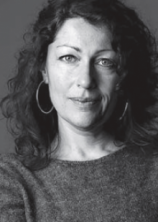Elisabeth Åsbrink
Biography
Elisabeth Åsbrink
Elisabeth Åsbrink is a nonfiction writer and journalist. She has worked for Swedish National Television for 15 years as a reporter and editor for news shows and cultural programs, often as an investigative journalist. Her first book, OCH I WIENERWALD STÅR TRÄDEN KVAR (AND IN THE VIENNA WOODS THE TREES REMAIN), received worldwide attention for revealing new information about IKEA founder Ingvar Kamprad’s ties to Nazism. It won several awards, including the August Prize for Best Swedish Non-Fiction Book of the Year (2011). Åsbrink made her debut as a playwright with RÄLS [TRACKS], based on the minutes taken at a meeting convened by Hermann Göring in 1938, and has since written four plays.
Elisabeth Åsbrink





